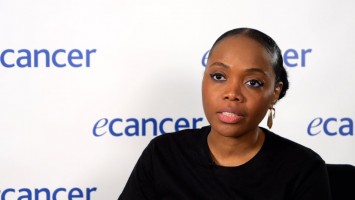I’m a medical oncologist and haematologist, I was trained in Canada. For the last thirty years I’ve been working in Columbia, I was the General Director of the National Cancer Institute and then I was a director of the oncology centre of two private universities in Bogota. Right now I was named Vice-Minister of Health, now actually I’m the Scientific Director of the Columbian League against Cancer. My main interest is half and half – half in signing policies that will influence the health system of my country and half part-time in my private practice.
I do believe that having medical assistance and being involved with patient care and doing a public agenda, if we can blend those two things it’s the best way to have a good incidence in the health system of Columbia. Sometimes physicians get very much involved in patient care and they forget that in order to make big changes you need to get involved with politics, not politicians, I have to say one more time, it’s not politicians, with the politics of a nation. If you really want to make meaningful changes you need to get involved with politics and convince the politicians with arguments, with data, this is the thing that needs to be done. Show them the facts and then tell them, ‘Do it,’ and make sure that’s done.
What other projects are you working on?
The Columbian League has understood that civil society needs to work together. One example is that we organised a couple of years ago what we called the OICI, which is the Interinstitutional Observatory for Childhood Cancer. We gathered with other societies, advocacy societies that are working to improve childhood cancer care, and we formed this group of associations and foundations that are looking and trying to improve childhood cancer care. Thanks to this organisation we were able to work together with the Ministry of Health to promote a law for childhood cancer with the aim that all Columbian children with cancer should receive the best treatment available in the world, the same as in developed countries. The law has been approved, now we must make sure that what is written on paper turns into reality. But it’s a big tool and it’s thanks to all of this type of effort of the civil society that finally is understanding that as citizens we have a lot of power and it’s a matter of getting together, organising ourselves and demanding the politicians, the government and all of the statements of the country to make sure that childhood cancer is being treated adequately, on time and with the best technology available. That’s our mission and that’s my aim and the aim of the Colombian League Against Cancer - working together to improve the health, especially of women and children. And I promise we’ll do it.








